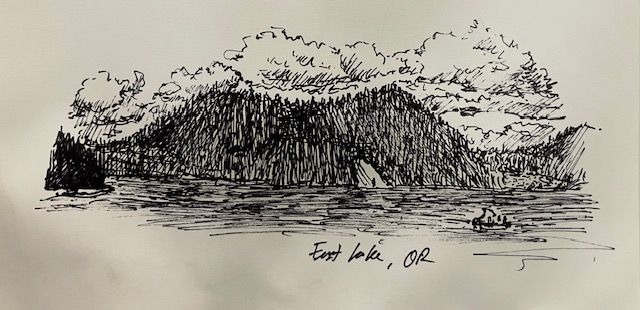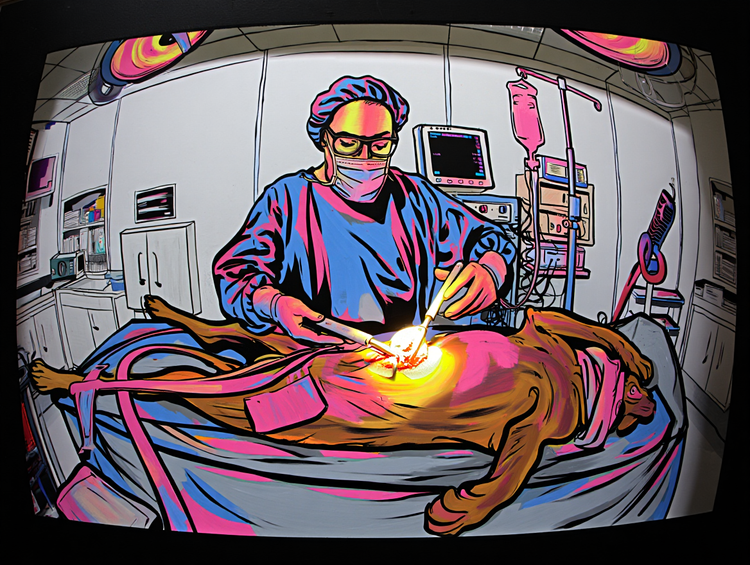What's That?

I recently had surgery on both ears, leaving me with packing in my canals to promote healing and moderate (but temporary) hearing impairment. While it hasn't been too disruptive to my personal life (my wife's opinion on my attentiveness may differ), at work, it's was a lot harder. I'm on a week long vacation in Central Oregon right now, but during a couple of ER shifts before I left, I felt like the auditory version of Mr. Magoo.
Auscultating chests proved to be the most challenging, with even a deep-chested dog's heartbeat stifled to a "tump, tump". Forget the gentle whistle of normal lung sounds. Relying on the keen observations of my colleagues (i.e. literally walking over and asking them to listen), was especially helpful in formulating diagnostic and treatment plans for dyspneic patients. This method proved critical in the early detection of pleural effusion in on of my feline patients.
Beyond the clinic, my hearing impairment presented difficulties on the phone and in communicating with nurses during curbside check-ins—a common norm in our busy ER. If I were to leave aside objective statistical methods, I'd estimate this made my work day 25-32% harder (95% CI ±5%). But this burden extended beyond me: everyone had to do more because I could do less. In the chaos of a busy, stuff-is-hitting-the-fan type day in the ER (often literally), it's not a positive psychological experience.
All of this is not to complain- the packing perfectly filtered out endless deep, loud barks and shrill little yaps from unsatisfied dog patients- but only to notice how much daily veterinary practice requires of the body. For instance, we were often admonished in vet school to "protect our hands" and had strict enforcement of safety eye wear. A lot of that dissipates though, the first time you see an old timer doing some dental high-speed drilling four inches away from a dog's mouth without goggles on because, "they're annoying".
But it did occur to me how much harder my job would be without the full acuity of my senses (common not always among them). This is obviously the plight of disabled people working in the veterinary profession, and probably many swine vets, from what I understand. But in day to day, able-sensed practice, everything from sound sensitivity, visual perception, and even olfaction (for fun, try to think of at least three disease condition you could diagnose from smell alone), really do inform clinical decision making.
I must admit, I find myself often in auto-pilot mode at work, expecting certain conditions in certain patients. It can become so easy to expect the old dachshund to have periodontal disease, or the old dehydrated cat to have kidney disease, or the difficult client to have financial limitations, for example, that we forget how much we can do with our eyes, ears, and brains (and noses!). But my temporary hearing loss brought me to a renewed awareness of the incredible diagnostic power our senses hold.
Having just a small part of that perceptive ability removed was immediately noticeable to me. While, I'm grateful that it's temporary, at the same time I am more deeply aware of the challenges faced by my colleagues. There are many of us facing with one limitation or another. Veterinary practice is a demanding profession, but with us performing to the best of our abilities- and with the support of our colleagues- it can still be a heck of a lot of fun.





Comments ()